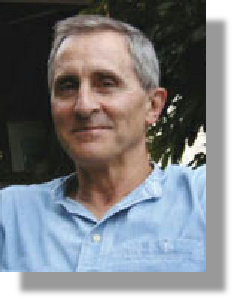


THE MAKING OF MODERN CHILDREN’S LITERATURE: J.R.R.TOLKIEN.
Produced by Julian Birkett for a BBC TV series on the life and work of writers of children’s fiction. (Broadcast in February,1998.)
A review published in MALLORN 36, in November 1998.
Television ‘documentary’ employs a multiplicity of visual and aural impulses
that distract rather than concentrate the mind. It is easy to assume that hectically
spliced and layered ‘information’ is ‘informative’, but to discuss matters of emphasis
and perspective, confusing hiatuses and missed opportunities after the event is a
way of asking whether programme-
Aficionados know what’s new, what’s pasted in (not always very neatly), but
at least the structure and emphases of this programme’s early stages support its
intention to suggest how and why, in terms of Tolkien’s background, interests and
career, The Hobbit became a success. Janet Aubrey’s presentation is cordial and free
of insinuations, though cluttered with statistics. The intervening ‘highbrow’ assessments
tend to be sweeping and unqualified: Carpenter, in ‘mediaesque’ flurry, but never
grudging, praises ‘ a mythology which enriches the cultural wasteland...(We) dream
of something greater than ourselves’; V.Flieger, astute and self-
At the other extreme are the incoherent, if sometimes appealing responses of a narrow age range of children. Rob Inglis’s sequence which evoked some of these does impress the narrative qualities of The Hobbit. But the most considered opinions are quiet and specific. Rayner Unwin comments on the difference between genuine popular appeal and ‘established’ acclaim, and endorses this in a delightful account of his first encounter with The Hobbit. The illustrator Alan Lee is one of the few voices that consistently acknowledges the impact of the text; and the environmentalist David Nicholson Lord substantiates earlier comments by saying that Tolkien ‘reinvented a lost world(one free from the incursions of suburbia) and invested it with more significance'. His later response to the 'personality' of the landscapes is persuasive and atmospherically filmed. But he overlooks Tolkien's contention that Middle Earth is the world as we know it, 'discovered' rather than invented.
Merging Lee's Dartmoor with a (too lengthy) aerial tour of suburbia is another
imaginative correlation of film to theme, but 'virtualising' mannerisms abound:
ponderous pipe-
Tolkien was initially announced as 'one of the great names of literature with a cult following.' But the 'greatness' is evidently established in the first third after which the dross tangled with the name dominates the 'visuals'. Phenomena, of course, make better TV than books.
A view of The Black Riders (elucidated by a drama school Strider) reveals Tolkien in more forbidding territory after The Hobbit, though its sequel is primarily introduced as negotiation between author and publisher with incessant 'bytes' of antique typewriter and affectedly donnish authorial voice.
I did have hopes that a suddenly presented office block with plate glass lifts
might be an emblem of Sauron's dream, until it materialised into a laborious encounter
with Livingstone's computer games empire: self-
At this point there's no attempt to balance and analyse the 1955 press reviews,
and Carpenter, who has already commended Gollum's groping as 'very sexual stuff',
comments on the imbalance of sexual perspectives in Tolkien (obscurely linked to
The Inklings). But worse follows: cliché footage zapped in as undemanding socio-
One can infer the absurdity from Rayner Unwin's view of the impact of such hysteria
on the author; but the programme is in itself hijacking Tolkien for sidekicks and
incidentals. It tells us the Tolkien Society was founded to combat such idiocy, then
marginalises Vera Chapman's endeavours and those of her successors, even in the context
of a dignified graveside tribute. Without mention of their scholarly achievement
Wayne Hammond and Cristina Scull are insulted with a dummy-
There's none of the biographical muck-
Off-
______________________________
Michael Tolkien (Early Aug.,1998)
Publ. in Mallorn 36. Nov.1998